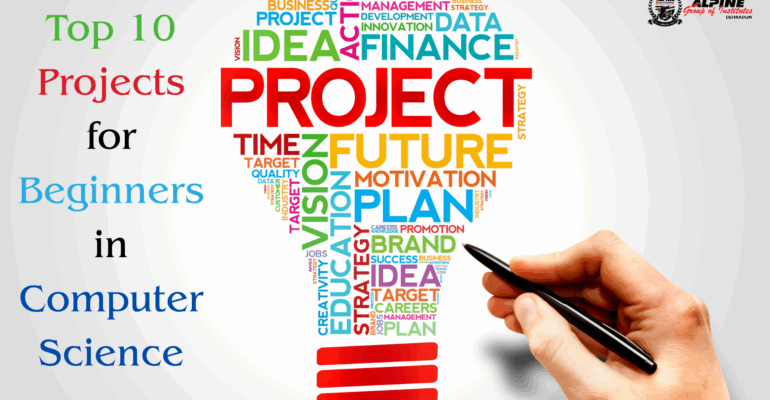Top 10 Projects for Beginners in Computer Science
2025-04-25 7:54Top 10 Projects for Beginners in Computer Science
Starting your journey in computer science? One of the best ways to learn programming is by building real-world projects. Whether you’re a first-year CSE student or simply diving into code for the first time, these beginner-friendly computer science mini projects are perfect for gaining hands-on experience.
1. Calculator App
Technologies: C, Python, JavaScript
Creating a basic calculator is one of the most classic computer science mini projects for beginners. It covers core concepts like arithmetic operations, user input, and control structures.
You can start with a command-line calculator and later build a GUI version using libraries like Tkinter (Python) or JavaScript for web-based apps.
Why it’s great for beginners:
- Reinforces logic building
- Simple UI/UX practice
- Quick and rewarding
To-Do List App
Technologies: HTML, CSS, JavaScript, Python (Flask/Django), or Java
A to-do list app helps students learn about CRUD operations (Create, Read, Update, Delete). It’s one of the best coding projects for students to understand frontend-backend communication and data storage.
Add features like:
- Task priorities
- Reminders
- Local or cloud storage
Bonus: Use React or Vue.js to scale your frontend skills!
3. Personal Portfolio Website
Technologies: HTML, CSS, JavaScript
A personal portfolio website not only builds your frontend skills but also acts as your digital resume. Include your bio, resume, and GitHub projects.
Why this is a must-do:
- Learn basic web development
- Showcase your projects
- Practice responsive design
Tip: Host it on GitHub Pages or Netlify for free.
4. Basic Game using Python
Technologies: Python, Pygame
Games like Tic Tac Toe, Snake, or Rock-Paper-Scissors are excellent easy programming projects for students. They introduce you to loops, functions, conditionals, and even simple AI logic.
Beginner-friendly ideas:
- Number guessing game
- Hangman
- Memory card game
5. Simple Weather App using API
Technologies: HTML, CSS, JavaScript, OpenWeatherMap API
APIs are everywhere. Building a weather app is a cool way to understand API calls, JSON, and asynchronous programming.
Features you can add:
- Real-time weather data
- Location-based results
- Temperature in Celsius/Fahrenheit
6. Unit Converter Tool
Technologies: Java, C++, or Python
This is a compact yet effective project to practice input validation, arithmetic operations, and GUI libraries.
Build converters for:
- Temperature
- Length
- Weight
You can make it console-based or GUI-based depending on your comfort level.
7. Digital Clock or Alarm App
Technologies: Python (Tkinter), JavaScript
Creating a digital clock teaches students about real-time systems. Add alarm functionality or integrate sounds to enhance the user experience.
Skills you learn:
- Working with time modules
- Event handling
- GUI development
8. Student Grade Calculator
Technologies: C, C++, Python
This is a great beginner project in CSE for learning data structures like arrays or lists. Create a system that accepts student names, subjects, and grades, then outputs average scores and grades.
Upgrade Ideas:
- Add database integration
- Export reports as PDF
9. Simple Chatbot
Technologies: Python (NLTK), JavaScript (Dialogflow)
While AI can sound intimidating, a basic rule-based chatbot is a fun and easy project for understanding logic and conditional statements.
Example use-cases:
- Weather bot
- FAQs bot
- Campus assistant for CSE students
10. Blogging Platform (Mini CMS)
Technologies: Python (Flask/Django), PHP, MySQL
A miniature content management system is a slightly advanced project but still beginner-accessible with the right tutorials. This will teach you about:
- Authentication
- Routing
- Databases
Start small with text-based posts, and you can later add image uploads, user login, and comments.
Final Thoughts
Whether you’re working on a semester mini project, building your first coding project, or just exploring ideas for fun, these project ideas for 1st year CSE students are the perfect place to begin.
Key Takeaways:
- Start small and scale your projects gradually.
- Use GitHub to document and showcase your code.
- Don’t be afraid to break things — it’s the best way to learn.
Looking for more inspiration? Try remixing these projects or combining them to create something unique.









